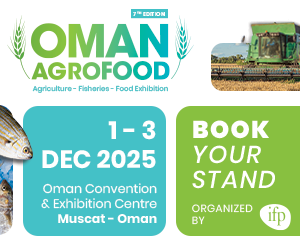Agriculture is reclaiming its pivotal role in African economies, with experts and leaders recognizing its vast potential to spark economic transformation across the continent. Accounting for roughly 22% of Africa’s GDP and employing over 60% of the workforce, agriculture is uniquely positioned to drive sustainable growth, create jobs, combat inflation, and address key social issues like food insecurity. With strategic investments, Africa’s agriculture sector could accelerate GDP growth, provide affordable food, and stimulate job creation, paving the way for a prosperous, resilient future.
A Catalyst for GDP Growth
With abundant arable land, diverse crops, and a climate conducive to agriculture, Africa holds incredible opportunities for boosting agricultural productivity and exports. However, the sector has long been underdeveloped, relying heavily on low-yield subsistence farming. Modernizing the industry with advanced techniques—such as mechanization, efficient irrigation, and climate-smart practices—could significantly increase yields, transforming agriculture into a powerhouse for GDP growth. Additionally, exporting high-demand agricultural products would strengthen economies and increase foreign exchange reserves, further stabilizing financial systems.
Food Security as a Cornerstone of Stability
In many African countries, food insecurity remains a pressing issue due to insufficient domestic production and dependency on imports, which makes countries vulnerable to global market fluctuations. Boosting food production through modernized agricultural practices would reduce this dependency, stabilize food prices, and enhance accessibility, ultimately helping to tackle malnutrition. By improving food security, countries can build resilience against external shocks, ensuring that citizens are nourished and productive.
Job Creation for a Growing Workforce
Agriculture offers a range of job opportunities across the production chain—from farming to food processing and distribution. For Africa’s young population, labor-intensive agriculture could be a lifeline, providing much-needed employment in rural areas where opportunities are limited. By promoting agribusiness, Africa can foster local economies, elevate household incomes, and encourage sustainable development.
Controlling Inflation with Local Production
Reliance on food imports makes African economies susceptible to inflation driven by global market shifts. By increasing domestic food production, countries can reduce this reliance, stabilize food prices, and strengthen their local currencies. Enhanced agricultural productivity not only supports economic stability but also improves affordability for low-income households, which are particularly affected by inflation.
Addressing Challenges for a Brighter Future
Realizing agriculture’s full potential requires tackling obstacles like limited access to finance, underdeveloped infrastructure, climate risks, and restricted market access. Solutions such as affordable microloans, investments in rural infrastructure, climate-smart practices, and robust supply chains are essential for unlocking the sector’s potential.
Strategic Path Forward
A collaborative effort among governments, private entities, and development organizations is crucial. Key initiatives include investments in agricultural technology, skill-building programs for youth, and public-private partnerships that strengthen value chains and encourage sustainable practices. With these strategic measures, Africa’s agriculture sector is poised to drive economic transformation, build resilience, and create a brighter, food-secure future.




















































































